Analysing the 2021 Tour de France teams
UAE Team Emirates, Deceuninck-Quickstep top the ratings with Pogacar, Cavendish
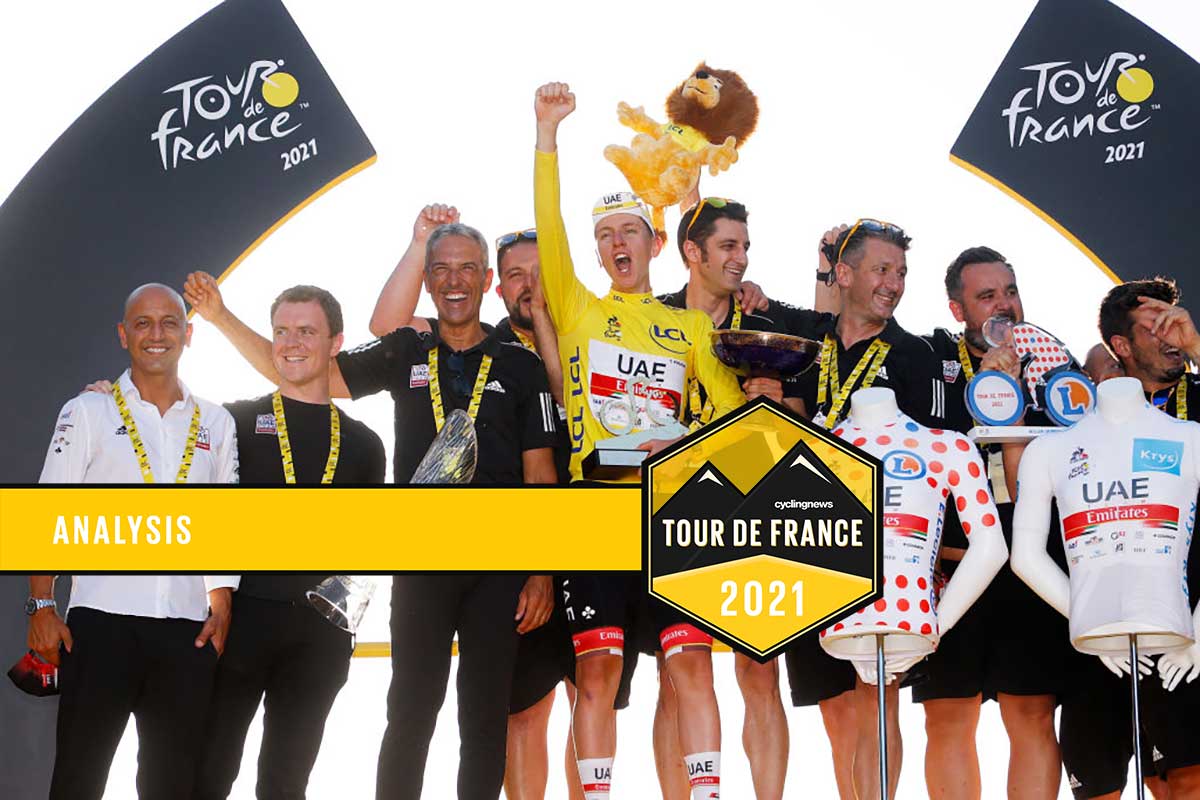
With the dust now settled on the 2021 Tour de France, everyone has had time to reflect on the race and gain a little perspective.
For a select few, the sense of achievement will be lingering, while for many others, that of disappointment may be starting to wear off.
It was that kind of a Tour - one in which a select few teams enjoyed barnstorming success and many more were left to lick their wounds. When 12 of the 21 stage wins are shared among just three teams, it's clear the others are going to be feeding off scraps.
Cyclingnews has analysed the performances of all 23 teams in the race, giving them a star rating out of five and ranking them in order of best to worst. As always, context is everything, so the assessments are made in light of the team's scope and ambition, rather than a purely results-based system.
As always, you can have your say in the comments section below.
UAE Team Emirates - ★★★★★
- Best GC: 1st - Tadej Pogačar
- Top results: Wins on stages 5, 17, 18 plus the yellow, white, and polta-dot jerseys - Tadej Pogačar
- Summary:
The big-budget team have won their second Tour de France in two years, winning three stages and three jerseys along the way. That’s largely down to Tadej Pogačar, who was streets ahead of his rivals on an individual basis and has surely established himself as the dominant force in modern Grand Tour racing.
But this was also a collective success. The first week ended with a flurry of excitable question marks over the team’s strength in depth and ability to control the race, particularly after a chaotic weekend in the Alps, but they ended up putting those questions to bed in the second half of the race.
Get The Leadout Newsletter
The latest race content, interviews, features, reviews and expert buying guides, direct to your inbox!
Pogačar was already so far out in front that his rivals had arguably discarded the notion of putting him under pressure, but still, that in turn led to a potentially chaotic situation where almost every team in the race looked to pile into breakaways. They never had to do too much all at once, but UAE managed the situation, with Vegard Stake Laengen doing big turns on the flat, Davide Formolo and Mikkel Bjerg standing out in the second week, and Rafal Majka coming good at the end in the Pyrenees. They came with a goal in mind and they achieved it with a minimum of fuss.
Deceuninck-QuickStep - ★★★★★
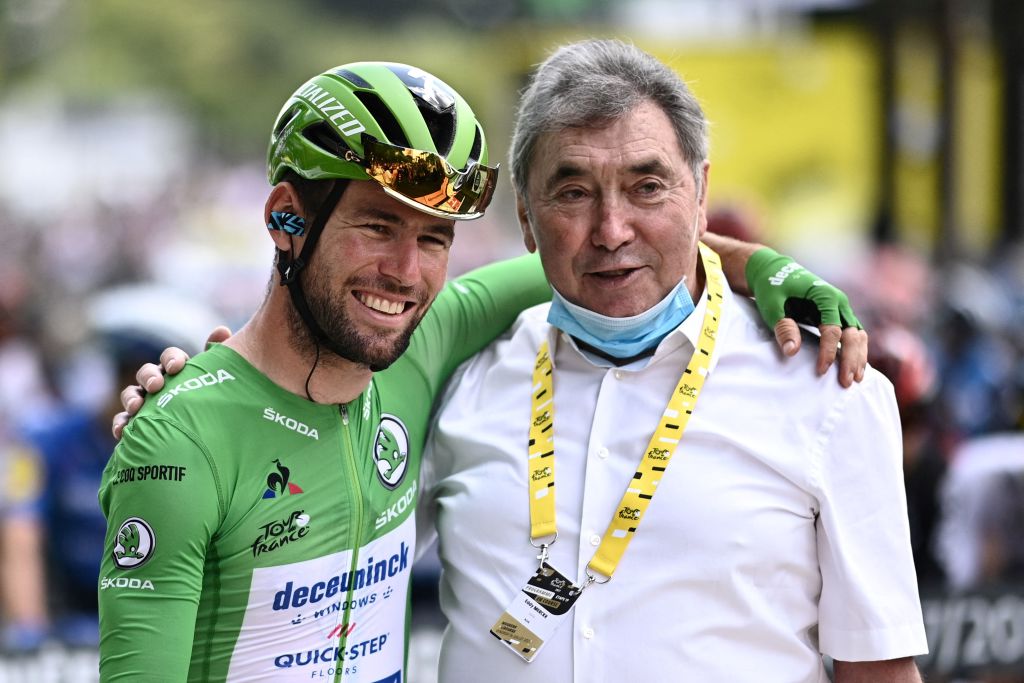
- Best GC: 12th, Mattia Cattaneo
- Top results: Wins on stages 4, 6, 10, 13, plus the green jersey - Mark Cavendish. Win on stage 1 - Julian Alaphilippe
- Summary:
With five stage wins, the Belgian team were the most prolific in the race. The fact that Mark Cavendish won four of them meant they were the most talked-about, with the Manxman’s resurgence a story for the ages. Four stage wins and the green jersey is up there with Cavendish’s best-ever Tour hauls, and the amount of goodwill generated by the background story and the sheer weight of headlines generated by the chase of the Merckx record will only have amplified the success from the point of view of the team management.
The rest of the team shone in support of Cavendish, the highlight being a picture-perfect multi-man lead-out on stage 10, and the way they rallied around Cavendish when time cuts threatened in the mountains was nearly on a par. Even if Julian Alaphilippe struggled to hit the right notes for the majority of the race, he still won the first stage and wore the yellow jersey for the third consecutive Tour, while Mattia Cattaneo delivered another strong performance and was knocking on the door of the top 10. Another hugely successful July for the Belgian team.
Jumbo-Visma - ★★★★☆
- Best GC: 2nd - Jonas Vingegaard
- Top results: Wins on stages 11, 20, 21 - Wout van Aert. Win on stage 15, Sepp Kuss
- Summary:
With Tom Dumoulin stepping aside earlier in the year and Steven Kruijswijk struggling for form all season, the three-pronged approach looked a little one-dimensional by the start in Brest. So when their talisman Primož Roglič crashed on stage 3 and then plummeted out of contention before joining Robert Gesink and Tony Martin on the way home, it looked like a salvage operation for the Dutch team.
From that low point, they surely couldn’t have imagined such future fortunes. Wout van Aert won a trio of stages, showcasing his astonishing versatility by winning in the mountains, against the clock, and in a bunch sprint. Sepp Kuss made it four in total in Andorra but the greatest success story was Jonas Vingegaard, the 24-year-old debutant who filled Roglič’s shoes and soared to second overall. The Dane has had a breakthrough year and, even if Jumbo-Visma didn’t win the Tour this year, they now known they have another option to do so in the future.
Alpecin-Fenix - ★★★★☆
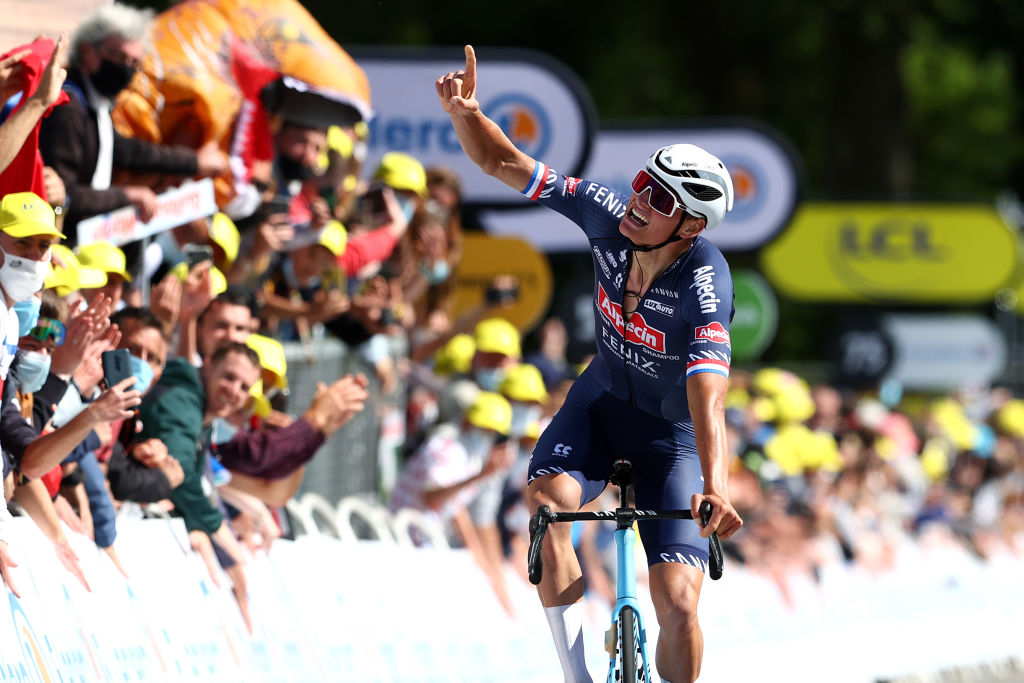
- Best GC: 29th - Xandro Meurisse
- Top results: Win on stage 2 - Mathieu van der Poel. Win on stage 3 - Tim Merlier
- Summary:
The Roodhooft brothers’ second-division team have been punching above their weight all season and the Tour de France proved to be no different. The talisman has of course been Mathieu van der Poel and he duly delivered, despite only spending a week in France ahead of his Olympic priorities.
Some ProTeams teams would have happily fed solely off the publicity generated when they turned up to the teams presentation rocking purple and amber jerseys in a tribute to Van der Poel’s late grandfather, Raymond Poulidor. But it got better as the young Dutchman claimed a thrilling and emotional stage win on the Mûr-de-Bretagne to pull on the yellow jersey his grandfather never got to wear. Tim Merlier made it two the next day after the team dominated the messy finish, and Van der Poel clung on to yellow all the way to the Alps. With neither Van der Poel or Merlier making it through the first week, Alpecin-Fenix were much quieter in the second half of the race, and an area of disappointment will be the fact that Jasper Philipsen finished on the podium in six sprint stages but didn’t win one. Still, the team’s first Tour was already a success after that first week.
Bahrain Victorious - ★★★★☆
- Best GC: 9th - Pello Bilbao
- Top results: Wins on stages 7, 19 - Matej Mohoric. Win on stage 8 - Dylan Teuns
- Summary:
Limit the Tour de France to the 3,414 kilometres of racing road, and it’s been a huge success for the Bahrain team. Matej Mohoric won two stages from long-range breakaways, Dylan Teuns won an Alpine epic, Wout Poels went close in the mountains classification, Sonny Colbrelli showed astonishing versatility, and they all walked away with the teams’ classification. But how can we ignore that hotel raid triggered by a police-led doping investigation? Suspicions had already been aired ahead of the race and those questions will now linger, such is the sport’s tainted history, and such was the reaction from certain riders, with Mohoric performing that ‘shut up’ celebration and Colbrelli claiming the investigation was inspired by ‘pure jealousy’.
Bora-Hansgrohe - ★★★½☆
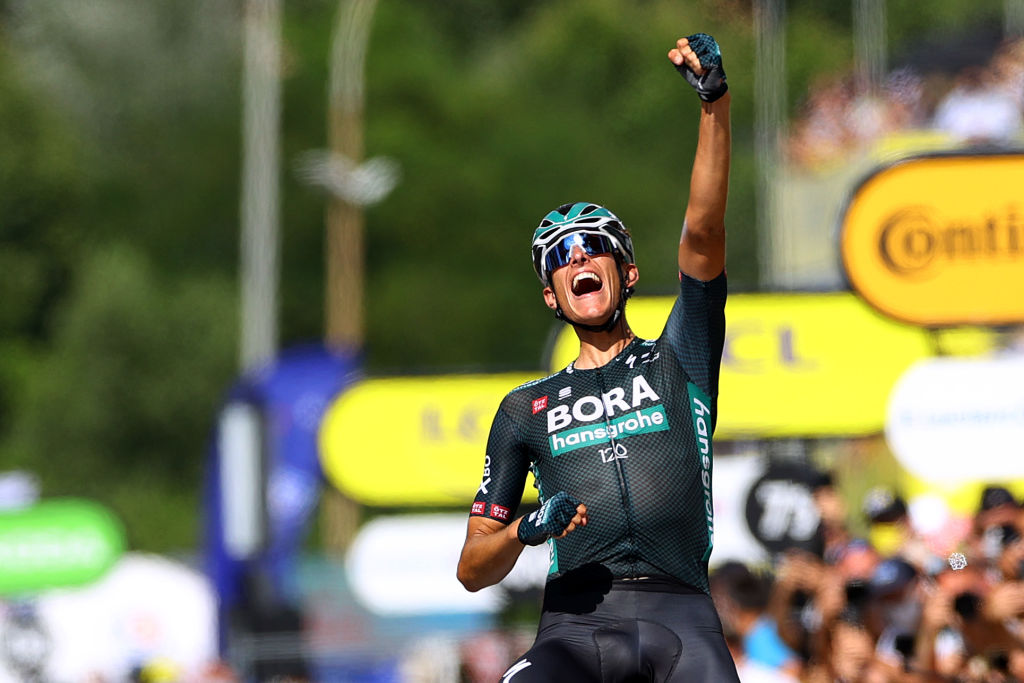
- Best GC: 5th - Wilco Kelderman
- Top results: Win on stage 12 - Nils Politt. Win on stage 16 - Patrick Konrad
- Summary:
It’s funny that when Peter Sagan left the race ahead of stage 12, Bora-Hansgrohe’s Tour suddenly sparked into life. Nils Politt won from the breakaway that very afternoon and Patrick Konrad did the same a few days later. All the while, Wilco Kelderman plotted his way to fifth overall. It was hardly a spectacular display, but the Dutchman was a consistent presence and has now finished in the top 10 of six of his past seven Grand Tours. The management may still have a hint of regret over leaving Pascal Ackermann at home, with nothing to show from the sprints, before or after Sagan's exit, but otherwise they’ll be more than happy with their three weeks’ work.
AG2R Citroën Team - ★★★½☆
- Best GC: 4th - Ben O'Connor
- Top results: Win on stage 9 - Ben O'Connor
- Summary:
When Romain Bardet and Pierre Latour jumped ship at the end of last year, it looked the team were parking their Grand Tour GC ambitions – for the time being at least – and pivoting to the Classics. Step forward Ben O’Connor, who has turned out to be the transfer of the season, picked up off the scrapheap and now with a new long-term contract. The Australian surpassed all expectations the team placed on him at the start of the year and has pretty much single-handedly made a success of their Tour. Elsewhere, Aurélien Paret-Peintre continued his development but the squad’s stars – Greg Van Avermaet, Benoît Cosnefroy, and Oliver Naesen – were all some way below their best. With fourth place in Paris, though, that disappointment won’t linger long.
Cofidis - ★★★☆☆
- Best GC: 8th - Guillaume Martin
- Top results: 2nd on stage 19 - Christophe Laporte
- Summary:
A mixed bag for the French team, who achieved their best overall result in 20 years but extended their spell without a stage win to 13 years. Guillaume Martin, signed as a leader 18 months ago, stepped up to deliver his best Grand Tour result. He craftily gained time by sneaking into breakaways, rather than being able to match the yellow jersey group, but that doesn’t take anything away from the Frenchman, who continues a steady line of improvement at the Tour. Anthony Perez and Pierre-Luc Périchon animated the breaks and Laporte came close in the stage 19 break, with only Matej Mohoric up the road. That was the difference between a good Tour and a great Tour.
Trek-Segafredo - ★★½☆☆

- Best GC: 20th - Bauke Mollema
- Top results: Win on stage 14 - Bauke Mollema
- Summary:
With Vincenzo Nibali clearly using the race as Olympic preparation and ducking out after 15 quiet stages, and with Bauke Mollema also targeting Tokyo and thinking more about stages, there was no GC focus for the team. With Mads Pedersen off colour and repeatedly on the deck, there ended up being nothing to gain from the sprints either. That left a fairly narrow corridor of breakaways for a team of their size, but they threw themselves into it whole-heartedly. Julien Bernard was a near-constant presence up front, Jasper Stuyven went close on stage 7, Mollema and Elissonde finished on the podium behind Van Aert on the Ventoux stage, and then Mollema struck gold with a long-range solo into Quillan. That pretty much saved their Tour.
Astana-Premier Tech - ★★½☆☆
- Best GC: 7th - Alexey Lutsenko
- Top results: 2nd on stage 8 - Ion Izagirre
- Summary:
The team were thrown into disarray just a couple of days before the Tour when it emerged that long-standing manager Alexander Vinokourov had been ousted from his position. The team didn’t look too disjointed, and ended up putting together a Tour that was respectable enough. The highlight was seventh overall for Alexey Lutsenko, who has never been spoken about as a GC rider but found new consistency in the high mountains. Even if he got there quietly, that result made up for the lack of a stage win. Jakob Fuglsang was a shadow of his usual self, which he attributes to the COVID vaccine, but Omar Fraile stepped up well in the Spanish champion’s jersey and Ion Izaguirre went close in a couple of mountain breaks which might have changed the complexion of their Tour.
B&B Hotels - ★★½☆☆
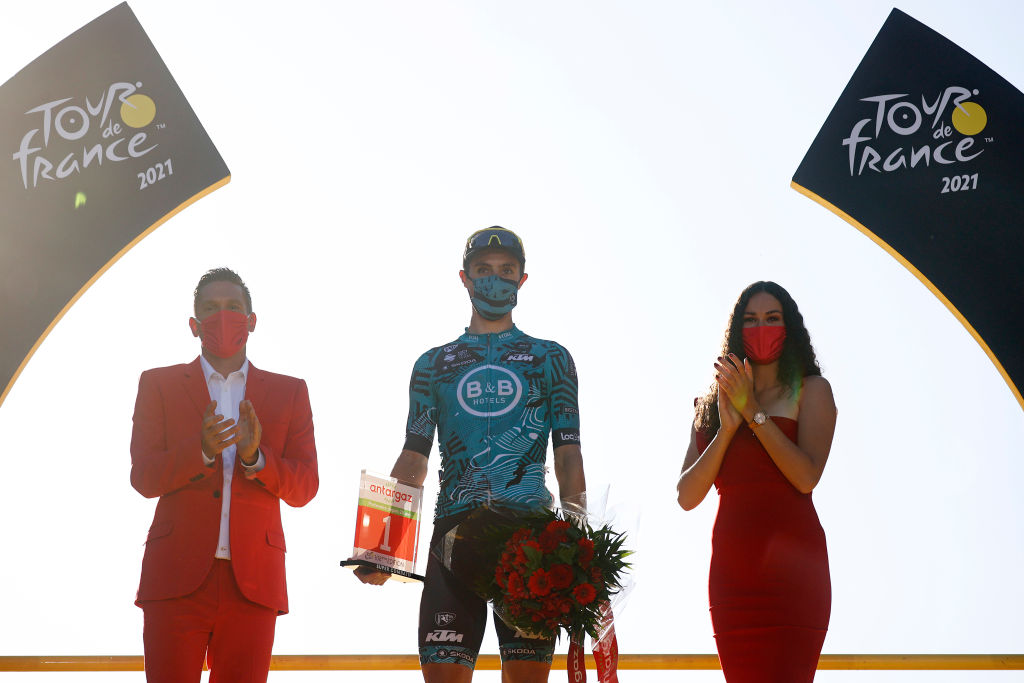
- Best GC: 22nd - Franck Bonnammour
- Top results: Overall super-combativity award - Franck Bonnammour
- Summary:
A quiet Tour from the second-division French team, whose race soon boiled down to breakaways when sprinter Bryan Coquard missed the time cut in Tignes. Pierre Rolland and Quentin Pacher did what they do and launched a string of attacks, even if doomed from the start, but the bright note was Franck Bonnamour. The 26-year-old won the Tour’s super-combativity award, but this was not just a rider attacking for the sake of it. He looked strong throughout his numerous breakaway forays and it wouldn’t have been surprising or undeserved if he’d walked away with a stage win.
Ineos Grenadiers - ★★☆☆☆
- Best GC: 3rd - Richard Carapaz
- Top results: 3rd on stages 17, 18 - Richard Carapaz
- Summary:
Context is everything when assessing teams’ performances at the Tour de France. Putting a rider on the final podium would make an overwhelming success of most teams’ races, but most teams haven’t won seven of the past nine yellow jerseys and most teams don’t have £50m to spend each year.
Having dominated the week-long scene this year, the British team came with four potential leaders but soon were down to just one. Geraint Thomas, Richie Porte, and Tao Geoghegan Hart all rode on to Paris after their crashes but were unable to affect the race in any meaningful way. Michal Kwiatkowski produced a strong showing on Mont Ventoux and Jonathan Castroviejo stood out in the Pyrenees, but even they didn’t have much of an impact. At times the team appeared confused, the old mountain train being redundant and the new adventurous free-spirited approach conspicuous by its absence (and perhaps not possible given the damage to their riders).
Carapaz’s podium – the first for an Ecuadorian and the team’s 11th in 12 years – is nothing to be sniffed at, but there will nevertheless be some soul-searching in the coming months.
Movistar - ★★☆☆☆
- Best GC: 6th - Enric Mas
- Top results: 2nd on stage 12 - Imano Erviti
- Summary:
The Spanish team were set back as soon as Miguel Angel López crashed and suffered the consequences. The Colombian had been in fine form since finally starting his season and arguably represented a stronger bet than Mas. The Spaniard did plug away to record a respectable GC result, but it will have been frustrating that he only really seemed to find his feet on the final mountain stage. 6th overall is not to be sniffed at but it’s one place lower than Mas managed last year and not really on a par with the ambitions of a team of Movistar’s stature, especially when there’s no stage win to compensate.
EF Education-Nippo - ★★☆☆☆
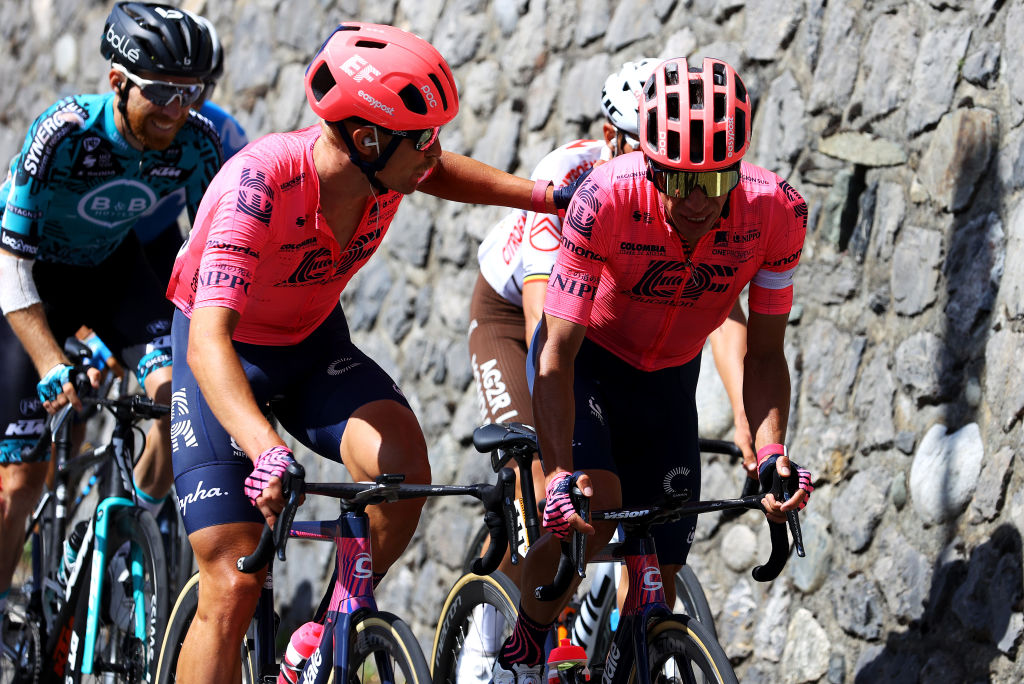
- Best GC: 10th - Rigoberto Urán
- Top results: 3rd on stage 7 - Magnus Cort
- Summary:
This year’s Tour was shaping up to be a big success until Rigoberto Urán suddenly fell flat on the Col du Tourmalet. They can look back on a top-10 in Paris – which they’d arguably have signed for given Urán’s troubled build-up – but it will be hard to see that glass as half full when the Colombian was in second place four days prior. There were decent turns at various points from a strong squad, but ultimately the magic was lacking for that all-important stage win, and the whole thing deflated with Urán’s downfall in the Pyrenees.
Arkea-Samsic - ★★☆☆☆
- Best GC: 28th - Nairo Quintana
- Top results: 2nd on stage 4 - Nacer Bouhanni
- Summary:
The French team’s afterparty in Paris was attended by just three riders, which says it all. Nairo Quintana had a couple of days in the polka-dot jersey but was a shadow of the rider that won the Tour and Vuelta, and the one who had an exception debut with the second-division team last year. Not much more could have been asked of the other two, Connor Swift and Elie Gesbert, who tried to tee Quintana up for Pyrenean points. A crash had already taken out the team’s leader, Warren Barguil, while their sprinter Nacer Bouhanni was having a really decent Tour, with three podiums before he crashed and abandoned in the Pyrenees.
Israel Start-Up Nation - ★½☆☆☆
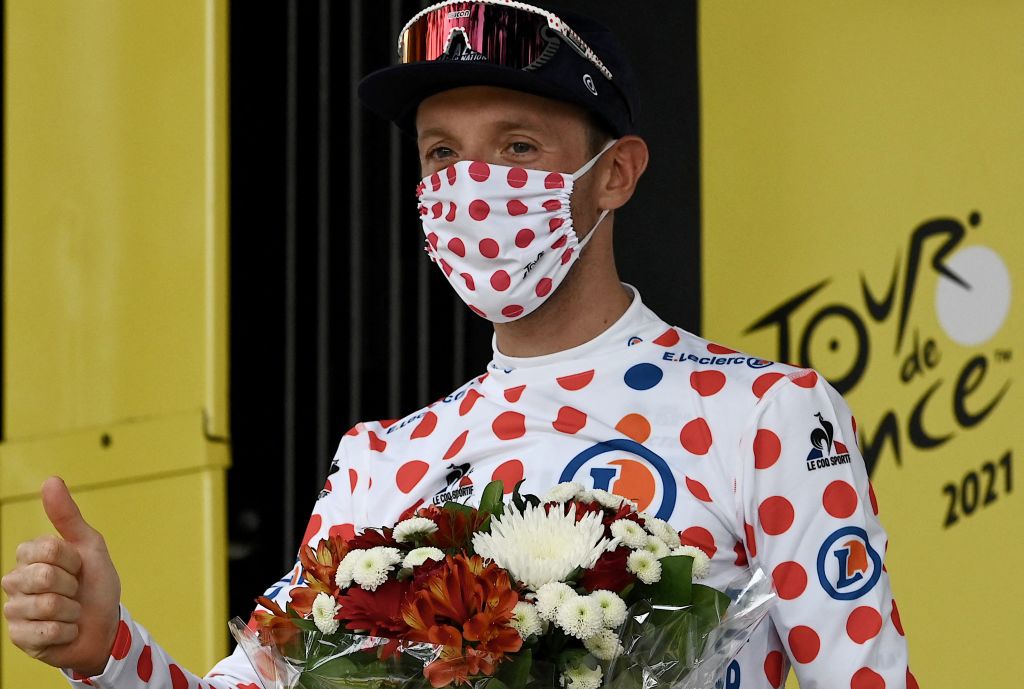
- Best GC: 40th, Dan Martin
- Top results: 3rd on stage 8 and one day in the polka-dots - Michael Woods
- Summary:
The team’s GC ambitions went up in smoke on the first day, and they were unable to land a stage win thereafter, making it hard to quantify this Tour as any sort of success. Michael Woods never sounded too enthusiastic about being a GC leader anyway, and he was soon right up there in the breakaways. He fell just short in Le Grand Bornand and then was beaten by Poels – and also ultimately by Pogacar – in the fight for the polka-dots, before leaving to focus on his main target: the Olympic Games. Dan Martin had a quiet three weeks, while 5th was Andre Greipel’s best sprint result in a race that made up his mind to retire. Chris Froome apparently won the ‘nicest and most polite’ rider award – such an award does indeed exist – but you sense the big-money team’s ambitions are a little more lofty than that.
Groupama-FDJ - ★½☆☆☆
- Best GC: 11th - David Gaudu
- Top results: 4th on stage 17 - David Gaudu
- Summary:
With no stage wins and no place in the top 10, Marc Madiot’s team fell well short of expectations at their most important fixture. Arnaud Démare had plenty of backing but only contested one sprint before missing the time cut in the Alps. Leadership was shared with up-and-coming climber David Gaudu, whose GC bid came apart spectacularly on Mont Ventoux. The Frenchman was a lively presence in breakaways thereafter but, despite rising to 11th overall by Paris, was unable to truly save his race with a stage win – as he did at last year’s Vuelta. Stefan Küng placed second and fourth in the time trials, while Bruno Armirail impressed and earned a new contract, but those are scraps to be feeding off.
Team BikeExchange - ★½☆☆☆

- Best GC: 13th - Esteban Chaves
- Top results: 2nd on stage 2 - Michael Matthews
- Summary:
At this point, every assessment should come with the caveat of fallen riders and in this case it was Simon Yates and Lucas Hamilton, the former being as near as you can get to a banker for mountain stage success and the latter making his debut in a bit of a breakthrough year.
Esteban Chaves gave the team something of a GC presence in the end, even if he was never part of the yellow jersey group, while Michael Matthews placed second in the points classification. That green jersey became the team’s main focus but their efforts looked increasingly futile with every mountain crested by Cavendish. In fact, Chris Juul-Jensen being called back from the break on stage 18 to set up the intermediate sprint, only to see another team working on the front, and then be sent back up to the break, raised a few question marks over their approach. Matthews and Mezgec were both in the top 10 on the Champs Elysées, but the Australian’s second place on the opening day turned out, rather than an encouraging sign of things to come, to be itself the high point.
TotalEnergies - ★½☆☆☆
- Best GC: 46th - Cristián Rodríguez
- Top results: 9th on stage 2 - Pierre Latour
- Summary:
The overriding recollection of TotalEnergies in this Tour de France will surely be Pierre Latour launching all-out gurning offensives in the most random of locations. When he jumped after Julian Alaphilippe on the opening day, it looked like we might be seeing the old Latour, who won the white jersey in 2018 before a difficult couple of years with injuries. He might not have been back at that level, but even so, there were question marks over whether he could have targeted his resources a little more carefully. Elsewhere, Edvald Boasson Hagen was meant to be a banker for some stage placings but had a poor Tour, while the rest of the riders infiltrated breaks but were never in the mix for a win.
Lotto Soudal - ★☆☆☆☆
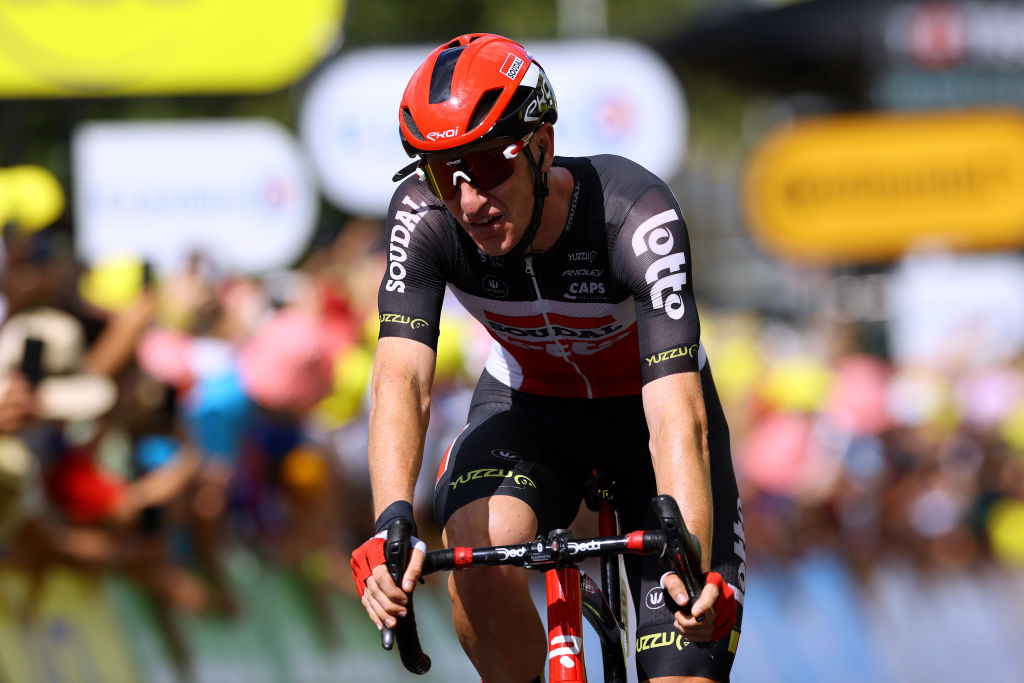
- Best GC: 65th - Brent Van Moer
- Top results: 3rd on stage 12 - Harry Sweeny
- Summary:
When you effectively build your entire team around one rider, and that rider crashes out on stage 3, it’s going to be a difficult three weeks. With Ewan’s collarbone broken in two pieces, the team switched to breakaways, but without much luck. Their former world champion Philippe Gilbert rode an anonymous Tour, while their most trusted baroudeur Thomas De Gendt was far from his usual self and reached Paris questioning his future in the sport. Young Harry Sweeny was a lively presence in the stage to Nimes, while Brent Van Moer showed the sort of intent that has seen him labelled a successor of sorts to De Gendt, but that was about as good as it got for the Belgian team.
Team DSM - ★☆☆☆☆
- Best GC: 45th - Mark Donovan
- Top results: 3rd on stage 19 - Casper Pedersen
- Summary:
The darlings of last year’s Tour endured that difficult second album. Much praised 12 months ago for their inventive tactics and ability to find the target from the most unexpected of places, this time they couldn’t hit a barn door from six yards.
Once again, crashes derailed their ambitions and perhaps make the above seem harsh. Their best two riders, Søren Kragh Andersen and Tiesj Benoot, both hit the deck and were home not long after the halfway point, joining Jasha Sutterlin who was taken out on the very first day. The team were a strong presence in the sprints last year but there was no lead-out train to be seen this time and the best Cees Bol could manage was sixth. With no GC rider, that only left breakaways, with Bol’s lead-out man Casper Pedersen grabbing their best result two days from Paris. A bump back down to earth and a Tour to forget for Iwan Spekenbrink’s team.
Intermarché-Wanty-Gobert - ★☆☆☆☆
- Best GC: 14th, Louis Meintjes
- Top results: 5th on stage 13 - Danny van Poppel
- Summary:
The Belgian team’s first Tour de France as a WorldTour outfit proved a tough one. They weren’t creating any headlines at all, until they were creating negative ones. Team director Hilaire Van Der Schueren was criticizing his riders in the media – even publicly questioning the mindset of one – and Jan Bakelants had a pop back in the same publication. It was no doubt entertaining stuff for the casual observer but not for the team’s head honcho, Jean-François Bourlaert, who reportedly then stopped Van Der Schueren from talking to the media.
As with many teams, there were mitigating circumstances in the form of crashes and injuries, but suspicions the team lacked the quality to confidently take the step to WorldTour level were ultimately borne out. After Van der Schueren’s intervention, the team were more present in breakaways in the final week but, again, more has to be expected from a top-tier outfit.
Qhubeka-NextHash - ½☆☆☆☆
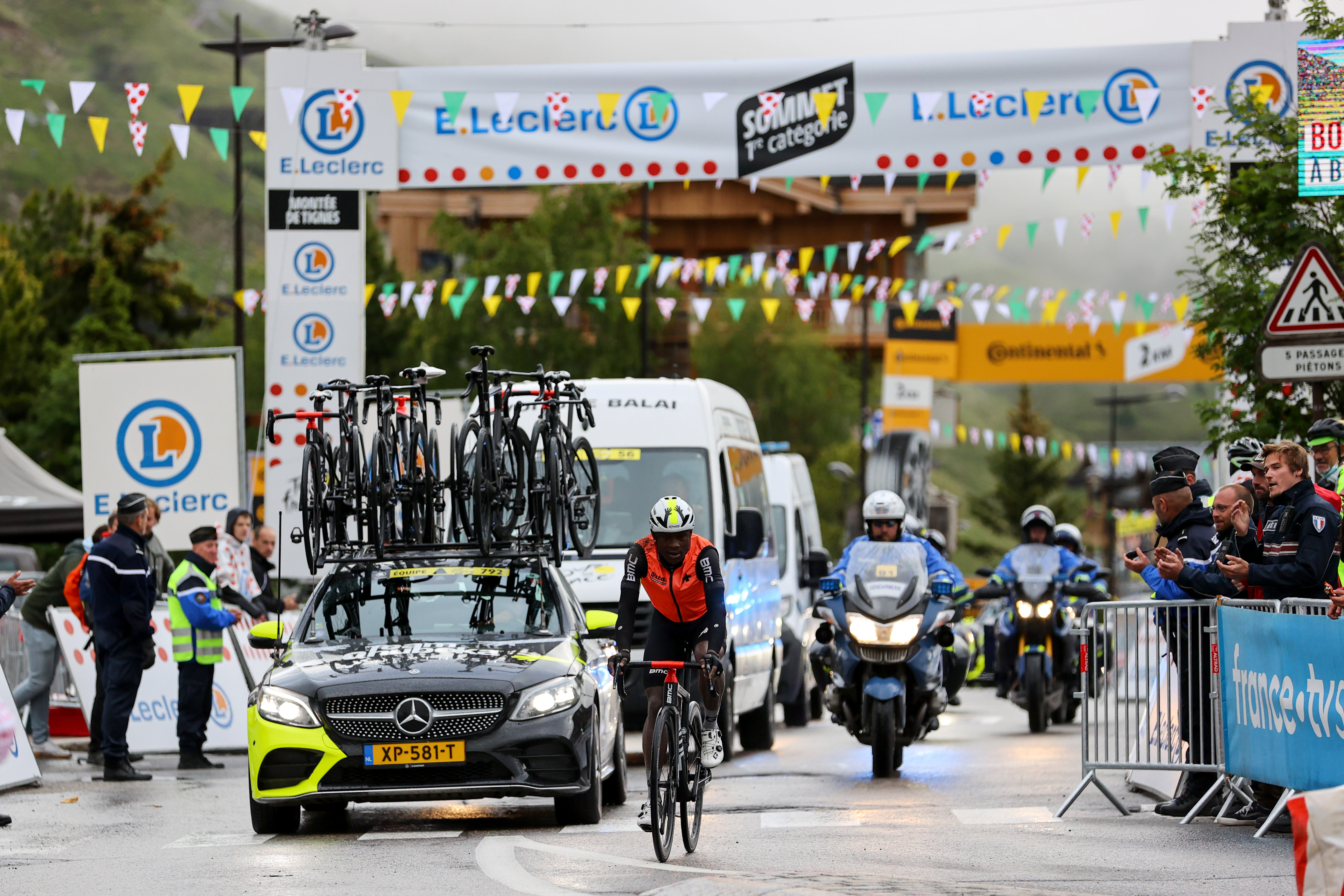
- Best GC: 21st - Sergio Henao
- Top results: 10th on stage 21 - Max Walscheid
- Summary:
The South African team made a splash ahead of the race with the unveiling of a new sponsor and a new kit, but NextHash weren’t treated to much exposure over the subsequent three weeks. 10th place was as good as it got in terms of results, through Max Walscheid on stages 3 and 21, and Sergio Henao on stage 12. They lost Victor Campenaerts, Michael Gogl, and Nic Dlamini around the half-way mark, while Simon Clarke rode on with a wounded back. The team made it into a few breaks in the second half of the race but had little to no impact on proceedings. In fact, the highlight of their Tour was Dlamini’s exit. The first Black South African to ride the Tour, he crashed on stage 9 in the Alps and was well outside the time limit but refused to get off his bike and rode all the way to Tignes in a bid to ‘honour the race’. It was one of the many great stories of the first week.
Patrick is a freelance sports writer and editor. He’s an NCTJ-accredited journalist with a bachelor’s degree in modern languages (French and Spanish). Patrick worked full-time at Cyclingnews for eight years between 2015 and 2023, latterly as Deputy Editor.
